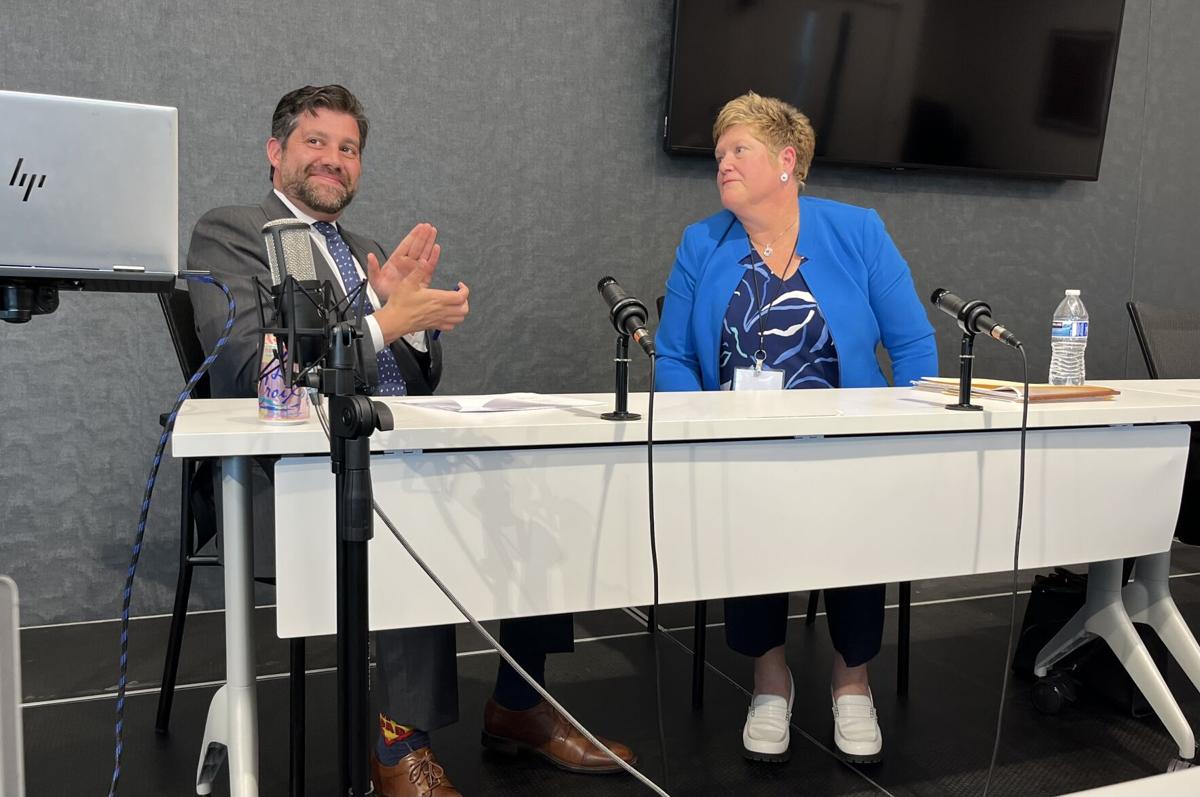10th Circuit rules Denver deputy will face trial for punching man in wheelchair
The Colorado-based federal appeals court agreed on Friday that a Denver sheriff’s deputy will face a civil jury trial for using “arbitrary and punitive force” against a restrained man who spat on him.
Video footage from 2019 captured Deputy Jason Gentempo punching and shoving Serafin Finn, who was in a wheelchair, to the ground after Finn spat on Gentempo. The resulting lawsuit alleged Gentempo used excessive force against Finn.
Gentempo argued he was entitled to qualified immunity, a judicial doctrine that shields government employees from lawsuits unless they violate a person’s clear legal rights. A trial judge rejected that argument, concluding a jury could decide Gentempo’s force was excessive and aimed at punishing a pretrial detainee, which the law clearly prohibits.
On appeal to the U.S. Court of Appeals for the 10th Circuit, Gentempo maintained no prior court case put him on notice that his conduct violated Finn’s rights. But a three-judge panel saw otherwise.
“Because it is clearly established that an officer cannot subject a pretrial detainee to punishment or force not rationally related to a legitimate nonpunitive governmental purpose, as Defendant did here, the district court properly denied” qualified immunity, wrote Judge Joel M. Carson III in a May 30 order.
Gentempo and another deputy arrived at Denver Health on March 20, 2019 to retrieve Finn and take him to the nearby jail. The deputies moved Finn outside in a wheelchair while he was handcuffed and restrained. At one point in the transport, surveillance video showed Finn turning and appearing to spit on Gentempo.
The video, first reported by FOX31, then captured Gentempo punching Finn, grabbing his face and pushing him, still seated, into the ground. Other security personnel arrived and put a hood on Finn’s head. Finn later died, unrelated to his confrontation with Gentempo.
Gentempo’s lawyers, in response to the federal lawsuit, admitted “the force occurred” and Gentempo had subsequently “laid on top of Mr. Finn and applied pressure points to the head and neck.” Gentempo also “consistently denied he had struck Mr. Finn,” despite the video evidence to the contrary.
The administrator of Finn’s estate filed suit against Gentempo for excessive force. The plaintiff, Melissa R. Schwartz, also sought to hold Denver liable for its role in Finn’s injuries.
Gentempo moved to resolve the claims in his favor without a trial, asserting qualified immunity. In a December 2023 order, U.S. District Court Judge Charlotte N. Sweeney declined to do so.
“For one thing, a jury could conclude that Deputy Gentempo punching Mr. Finn and flipping his wheelchair onto the pavement was unrelated to his purported interest in preventing Mr. Finn from spitting at or on the deputies,” she wrote.

Attorney David Gartenberg applauds for U.S. District Court Judge Charlotte N. Sweeney at a legal event in Denver on July 21, 2023.
Michael Karlik michael.karlik@coloradopolitics.com
Sweeney also noted a disciplinary analyst had described Gentempo’s actions as a “knee-jerk reaction” that was “retaliatory or punitive in nature.” Finally, she observed that “punishment is never constitutionally permissible for presumptively innocent individuals awaiting trial.”
Gentempo appealed Sweeney’s order. He did not dispute Sweeney’s “version of the facts,” but rather argued he was not clearly put on notice that his conduct would be unconstitutional.
Given Sweeney’s conclusion that a jury could deem the punch an “act of rage, you’re saying there wouldn’t be clearly established law that just because you’re angry with something, you can’t strike someone in a wheelchair who’s handcuffed?” asked Judge Gregory A. Phillips during oral arguments in November.
“She was mandated to find a case that was sufficiently similar to put my client on notice that what he was doing violated” Finn’s rights, responded attorney Eric M. Ziporin.
“So you get a ‘free-strike rule’ in a spitting case?” asked Judge Timothy M. Tymkovich.
“I am not without sympathy to your client,” added Carson, “but if you look at that video, it strikes you as punitive.”
At the same time, the appellate judges pressed the plaintiff’s lawyer about the propriety of Finn’s spitting and the fact that Finn’s restraints did not prevent the unwanted contact that affected Gentempo.
Gentempo’s actions “halted the misconduct quickly,” said Tymkovich. “And what case out there says an officer can’t interrupt an assault with use of force?”
“So would shooting Mr. Finn — it would also stop the conduct. But striking Mr. Finn, punching him and slamming him to the pavement,” responded attorney Omeed M. Azmoudeh, “was not rationally related to that government interest in stopping the assault.”

The Denver Justice Center on Wednesday, Oct. 23, 2024. The Denver County Sheriff's Office jail is inside.
Tom Hellauer/Denver Gazette
Ultimately, the panel upheld Sweeney’s decision. It was “critical,” wrote Carson, that Gentempo did not challenge Sweeney’s finding that his force was unrelated to a legitimate purpose. Prior court cases had, in fact, established such force against pretrial detainees would be unconstitutional.
“This oft-repeated brightline rule puts every reasonable officer on notice that punishing pretrial detainees by using arbitrary force is unlawful,” Carson added.
The case is Schwartz v. Gentempo et al.
Colorado Politics Must-Reads:







